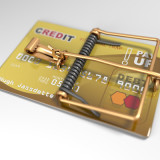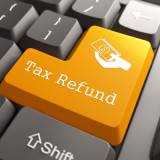Understandably, much of the current media attention devoted to the Ventra cards centers on how Chicagoans can transition from using Chicago Card transit cards and other paper tickets to the new option; basically, riders have to wave the radio frequency identification (RFID) enabled over a reader as they enter a subway station or board a bus. Although of less immediate concern to riders of Chicago’s public transport system is a new option that allows Ventra card holders to also open a prepaid debit MasterCard account.
Category: Best Low Fee Prepaid Cards
Millions of people are turning to prepaid debit cards as a smart alternative to carrying cash and writing checks. Almost anyone can qualify and they don’t require a credit check or a bank account. Though they carry credit card logos and can be used anywhere a credit card is used, unlike a credit card, they do not offer a line of credit. The user can only spend the amount that has been loaded onto the card or placed into the account associated with the card.
There are dozens of debit cards on the market, many of them issued by the same bank, but fee structures are vastly different. Bestprepaiddebitcards.com has done all the research for you and provides comprehensive reviews to help you decide which card is best for you.
Prepaid Debit Card Scams Proliferate
While popular, the utility scam is not the only type that relies on the use of prepaid debit cards. According to a story in the Arizona Republic, two citizens of Surprise, Arizona were indicted in a $2.5 million income-tax scheme involving prepaid debit cards. According to the charges brought by the U.S. Department of Justice, the alleged perpetrators told victims that they could receive “Obama stimulus money” or “government funding” via a prepaid debit card. In return for that promised government money, victims handed over personal information that was used by the alleged criminals to file false federal income-tax returns. In total, the 18-count indictment by the federal government says that the perpetrators received over $2.5 million in refunds.
Tax Refunds And Prepaid Debit Cards
Prepaid debit cards have recently become a favored way for states and the federal government to pay tax refunds. The arguments in favor of the use of prepaid debit cards over paper checks in states like Connecticut, Georgia and Louisiana are similar. Not only do citizens who lack a bank account – and therefore cannot take advantage of direct deposit – receive their refund quicker than if it came through the mail in the form of a paper check, but the governments themselves like prepaid debit cards because it save them money.Those are a few of the issues John Friedman took up in a recent story for Bloomberg Law entitled, “Policy Perspectives On Tax Refunds: An Economic Analysis Of Government-Sponsored Debit Card Refunds.” Friedman, an assistant professor of public policy at the Harvard Kennedy School and a faculty research fellow at the National Bureau of Economic Research, does an in-depth cost-benefit analysis of the embrace of prepaid debit cards and arrives at some conclusions that go counter to many of the arguments policymakers have made.
Risky New Bank Card Technology – Is Your Card At Risk
It sounds like a great idea. A host of new credit and debit cards issued by big financial players like Chase and MasterCard come armed with small computer chips and radio antennae that allow consumers to make payments by literally waving their plastic over a card reader. But according to a story in Consumer Reports Magazine,… Continue reading Risky New Bank Card Technology – Is Your Card At Risk
City Embraces Gift Cards – Iowa City turns to gift cards to boost downtown businesses
According to a story in The Daily Iowan, that’s exactly what businesses in the Downtown District of Iowa City did this past Aug. The idea was the brainchild of the Downtown District, which cited the success of other cities like Des Moines in offering a single gift card that can be utilized at numerous businesses in a small geographic area.
Prepaid Debit Cards And Obamacare
According to the Businessweek story by John Tozzi, the state exchanges that will begin opening in Oct. will be required to accept payment via not only prepaid debit cards but also checks, money orders and bank wire transfers. In a way, this shouldn’t be at all surprising. After all, the Affordable Care Act is aimed largely at helping low-income families to purchase health care. Even though these new entrants to the health care market will be aided with government subsidies to help afford their new plans, they will still need a way to pay for it.





